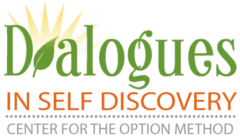 Things change and we’re not always ready for it. Yesterday you had a job you thought you could depend upon; today you’re out of work. You thought your marriage was fine; now you’re facing divorce. You thought you were in good health; now you know you need major surgery. You just became the victim of identity theft. Your house just burned down. You lost half your savings in the stock market.
Things change and we’re not always ready for it. Yesterday you had a job you thought you could depend upon; today you’re out of work. You thought your marriage was fine; now you’re facing divorce. You thought you were in good health; now you know you need major surgery. You just became the victim of identity theft. Your house just burned down. You lost half your savings in the stock market.
These are tough challenges. You may have faced some of these yourself or others like them. All of these circumstances represent those times in our lives when things change quickly or significantly. Circumstances that we often feel unprepared for. That are on our list of “least wanted” things to happen.
All of these situations can certainly stop us in our tracks and turn our life as we know it upside down. But the worst part of all can sometimes be the way we feel about them. We may feel as if we have lost our compass and are adrift in uncertainty. Like we have lost ourselves in some way. We may become frozen with fear and indecision, distracted with worry, overwhelmed with the immensity of our circumstances.
These are the situations where people often say they feel as if the rug has been pulled out from under them, meaning they have lost something critically important to their equilibrium. Sometimes it can be hard to imagine feeling any differently. But if you have experienced any of these things, you may have discovered that the way you felt – both good and bad – was surprising. We truly never know how we will feel about things until they actually happen.
Perhaps that’s a clue that it is possible to weather these disruptive events without losing our balance and falling into some imagined abyss. We have the capacity to thrive in every kind of circumstance and to maintain our emotional balance, even to avoid unhappiness altogether and still enjoy life.
So perhaps if you are feeling as if the rug has been pulled out from under you, it’s the perfect time to defuse this old idiom. Along with “hit me like a ton of bricks”, “knocked me for a loop”, “floored me”, “buried me”, “destroyed me”, “blindsided me”, “knocked me over with a feather,” and …. You get the idea.
All of these expressions are meant to convey two things. First, that we can be surprised and caught off guard. But also that if that happens, we will feel temporarily or perhaps permanently flummoxed, bewildered, discombobulated – another set of special words meant to convey a kind of helplessness in the face of extraordinary events. Whatever the words, we believe we will feel bad in some way.
My teacher, Bruce Di Marsico, used to say, “Isn’t it bad enough you have lost your job (or whatever your personal challenge is , do you have to be unhappy too? “ What he meant by that is that we can’t always help the circumstances of our lives, but we can always help how we feel about them. When we know this, no one and no thing can ever really pull the rug out from under us.
You decide what your journey will be
When our life’s circumstances change, we can think of it as the beginning of a journey. It’s completely up to us how we take that journey. Whenever you travel, don’t you want to take along what is necessary or enjoyable? And don’t you want to avoid loading yourself up with unnecessary baggage? When change is upon us, whether we create it or it finds us, our beliefs about the future determine how we move ahead. It can be extremely powerful and self-actualizing to look at our beliefs to see what may impede or even possibly thwart our progress. What baggage can we jettison to travel happily forward?
It’s important to remember that our journey is not just about moving ahead. Our journey is always driven by the desire to be happy. All unhappiness is related to the fear of being unhappy in the future. Therefore, to fully reveal what is at the heart of any fears we may have, we can focus first on beliefs that are directly related to our unhappiness and happiness.
Five questions to lighten your load
If you think about the change in your life as a journey, you can discover what beliefs are weighing you down by starting with your feelings. Here are some questions used in the Option Method that can help. The first question to ask is just simply:
How do you feel about the journey? In other words, how do you feel about what happened? This may seem like an unnecessary question. Of course, we already know how we feel. But often, when we are unhappy, we really haven’t identified the feeling in an effective way. Our feelings may seem fuzzy and hard to pinpoint. Or we may just be pushing the feelings away, hoping that things will change and we won’t have to suffer any more. We can always know what we feel down to the smallest detail if we ask. The key to asking this question effectively is to ask with an open mind. Without filters of any kind. Ask with the innocence of a child and allow yourself to know your real feelings.
The second question is: Why are you feeling as you do? Why are you unhappy? Once you have uncovered your specific feelings in the first questions, asking why can shed light on why you believe you have to feel as you do. Often people feel that there is a direct cause and effect relationship between events and their unhappiness. They may answer this question saying – Of course I feel bad, wouldn’t you? Someone else might feel bad as well, but they would have their own reasons. You have your own very personal reasons for feeling the way you do. What are your reasons?
Ask again with the innocence of a child, without filters. As if you came from a world where nothing can cause anyone to be unhappy, so it would be very natural if we found an unhappy person, to simply ask why.
The third question is – What am I afraid it would mean if I weren’t unhappy? The purpose of this question is to help you understand further why you believe you have to be unhappy. Asking this question does two things. First, it reminds us that there is a choice. When we are unhappy, we are not in touch with our reasons. or beliefs, or that we have a choice of any kind. We are simply feeling according to what is happening and what we believe about it. When we put choice back into the equation, we put ourselves back in the driver’s seat.
Second, it helps us to uncover the real purpose behind unhappiness, meaning our own very personal purpose. For example, people will often answer this question saying, “If I weren’t unhappy, it would mean I didn’t care.”
This is a perfect opportunity to ask the fourth question: Why do you believe that? Or why would it have to mean that? Sometimes when we ask this question, we can see immediately that there really is no valid reason to believe we wouldn’t care about things unless we were unhappy. We know we would care. But can we really be happy in the midst of change we didn’t bargain for?
Which leads us to what is probably the most important question of all: Could happiness be bad for me now? This is a wonderful opportunity to get in touch with what we really believe about happiness in all its manifestations. We all want to be happy, but sometimes when seen through the lens of unhappiness; happiness can seem ill-advised, unnatural, silly, even crazy or dangerous. But then, is it really happiness, or just another kind of unhappiness?
All these questions can help you decide what you want your journey to be. You don’t have to live under the spell of hidden fears and beliefs. Can the rug be pulled out from under you? Or do you stand strong in your own vision of the happiness that is perfect for you in all the circumstances of your life?
#theoptionmethod #wendydolber #stress #happiness
Call Wendy Dolber at 973-714-2800 for a free consultation on how The Option Method can help you lead a stress-free life.
